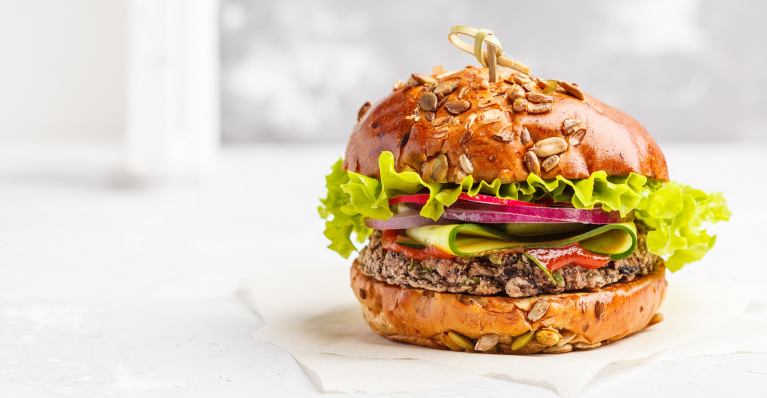Bunge Loders Croklaan to intro plant-based fats at FiE
3 Dec 2019Bunge Loders Croklaan (BLC) has entered the veggie burger category with the introduction of a range of plant-based fats designed as replacements for meat fats.
The 100% plant-based solutions are said to mimic the sensory characteristics of the “real thing” and will be presented December 2-5 at Fi Europe 2019, booth #6E60.

The company will showcase plant-based burgers infused with its palm and shea-based fat systems that it says possess unique melting profiles and can be applied as crucial fat ingredients to meatless burgers. Both are said to feature the ability to deliver more bite, a juicy mouthfeel, and full flavour, at just the right moment and produce no oil leakage or excessive smoking on a cooking surface.
Euromonitor International, reports that 24% of the surveyed global consumers are trying to cut down their meat intake, driving sales of global meat substitutes to reach $19.5 billion.
According to Innova Market Insights meat substitutes accounted for 11% of new meat product launches (meat, poultry and meat substitutes) reported in Europe in 2018 (January to September), up from 9% in 2013. The global picture shows stronger growth still, with 14% of meat launches in the first nine months of 2018 being meat alternatives. This compares with 6% in 2013.
“A significant number of European consumers are adopting a version of the vegan or flexitarian lifestyle,” said Feike Swennenhuis, Marketing Director for BLC Europe. “Still, they insist on not missing out on that sensation of biting into a succulent beef burger and are seeking sustainable meat alternatives that can deliver the same eating experience. Fat, especially derived from beef, is the key contributor to flavour. We succeeded in recreating this sensory experience with high quality plant-based fats.”
BLC’s palm-based system is a flaked product that it says has proven to impart better functional attributes to meat-like products. For example, the company says, it can mimic the fat-bubbles and pockets characteristic of animal fat in hamburgers and is easier to process than liquid oils or waxy fats such as the more commonly used rapeseed oil (RP) or sunflower oils (SFO).
The two products also demonstrate capabilities for improving parameters such as firmness, cohesiveness, springiness, and potentially reduce the need for adding emulsifiers, gum-based texturizers, salt, and other flavour enhancers. This may improve clean-label attributes of current meat-replacement products that have experienced some consumer backlash for being too “overly-processed.”
“Our specialty palm and shea fat products can produce that palate-appealing melting fat behavior and meat fat-like texture to burger analogs, providing an all-around better mouthfeel uncannily like the real thing,” said Renee Boerefijn, Director of Innovation for BLC Europe.
From a nutritional perspective, both fats are non-hydrogenated and contain no trans fats. Both palm and shea contain more saturated fat in comparison to RP and SFO, but less than animal fat. This means they perform better on the griddle. They may be used at a lower level in the end product to avoid increasing the saturated fat level. Palm and shea are more stable by nature, possessing a higher smoking point compared to other plant oils.
